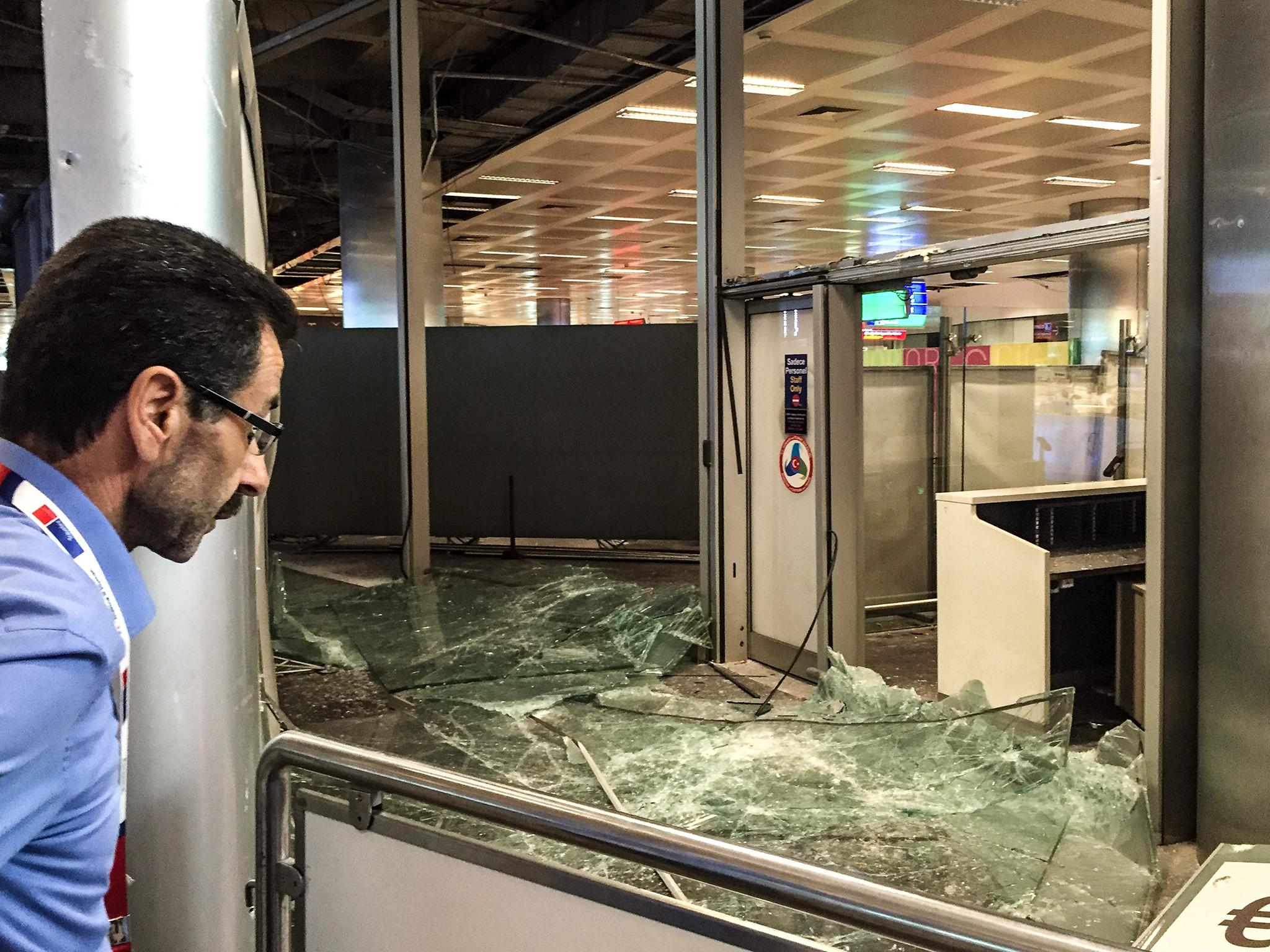Turkey airport attack: Forty-one dead – and a country’s future in tatters
President Erdogan has been increasingly isolated abroad while facing rising protests at home over his authoritarian policies as well as an increasingly bloody conflict with the Kurdish PKK and the Islamist terrorists of Isis

Your support helps us to tell the story
From reproductive rights to climate change to Big Tech, The Independent is on the ground when the story is developing. Whether it's investigating the financials of Elon Musk's pro-Trump PAC or producing our latest documentary, 'The A Word', which shines a light on the American women fighting for reproductive rights, we know how important it is to parse out the facts from the messaging.
At such a critical moment in US history, we need reporters on the ground. Your donation allows us to keep sending journalists to speak to both sides of the story.
The Independent is trusted by Americans across the entire political spectrum. And unlike many other quality news outlets, we choose not to lock Americans out of our reporting and analysis with paywalls. We believe quality journalism should be available to everyone, paid for by those who can afford it.
Your support makes all the difference.The murderous attack on Istanbul airport, killing 41 people, came hours after Recep Tayyip Erdogan had arranged a telephone call with Vladimir Putin. It was going to be their first conversation since the shooting down by the Turks of a Russian jet seven months ago. It was also a crucial part of a concerted diplomatic campaign by Ankara to repair badly damaged relations with countries in the region.
Turkey has just re-established diplomatic relations with Israel, six years after 10 Turkish citizens were killed when their aid ship bound for Gaza was stormed by Israeli forces. Moves are under way for rapprochement with Egypt whose president, Abdel Fattah el-Sisi, had been repeatedly attacked by Mr Erdogan over the coup which overthrew the Muslim Brotherhood government backed by Ankara.
The Turkish president has been increasingly isolated abroad while facing rising protests at home over his authoritarian policies as well as an increasingly bloody conflict with the Kurdish PKK and the Islamist terrorists of Isis.

On foreign relations, Mr Erdogan has had to climb down in his confrontation with Russia, sending “a letter expressing deep sorrow” over the downing of the Su-24 plane, after adamantly refusing to countenance anything approximating an apology in the past. He has made an agreement with Israel for some Turkish aid to get through to Gaza, although he has failed in his pledge to ensure that the blockade of the Strip by Israel and Egypt is lifted.
Binali Yildirim, who became the Turkish prime minister after Ahmet Davotoglu, the previous holder of the post was forced to resign by Mr Erdogan, wanted to stress. “We aim to improve our relations not only with Russia and Egypt but also with all countries around the Black Sea and Mediterranean. As Turkey, our basic principle is to want for others what we want for ourselves.”
Ankara had faced criticism for carrying out few air strikes against Isis, focusing instead on the PKK and has also, on occasions, bombed the Syrian Kurdish group, YPG, a key ally of the Americans against Isis.
The Turks have not scaled down their military action against the Kurds. But they have agreed to allow their Nato allies to run more flights along the border with Syria in operations against Isis. The Erdogan government also claims that it is now cracking down on Isis, pointing to the fact that 36 suspects are facing a total of 11,750 years in prison for a bomb attack in Ankara last year which killed 103 people and injured 250 others.
But Turkey has been, at best, ambivalent towards Islamist groups, including Isis, fighting the forces of Bashar al-Assad in Syria. Evidence has emerged that the country’s intelligence service, MIT, had facilitated arms supplies to Islamists. Turkish journalists, meanwhile, have been charged by the government for exposing the scandal.
The question is whether Ankara would be able to combat Isis even if it went after it with full energy. A large number of Turks are among the foreign fighters which have been fighting with the group in Syria and some of them are now slipping back across the frontier and finding shelter with sympathisers.
The threat is not just from Isis, but a group calling itself Kurdistan Freedom Hawks, an offshoot of the PKK. Less than a month ago it carried out a suicide bombing in the Istanbul district of Vezneciler, killing 12 people. It had previously claimed responsibility for two car bombings in Ankara in April, taking 29 lives.

One reason for the Turkish attempts to mollify the Kremlin — with Mr Erdogan saying he was “ready for any initiatives to relieve the pain and severity of the damage done” over the aircraft – was the severe impact on his country’s economy from sanctions imposed by a furious Mr Putin, in particular a ban on visits by Russian tourists.
The assault on Ataturk Airport, the third largest in Europe, and a rapidly expanding transport hub, will further damage the tourist trade, something Isis has threatened to do. And, after the Vezneciler bombing TAK warned foreign visitors to keep away, saying: “Turkey is no longer safe for them.”
The foreign and domestic policies of President Erdogan have both ended up having highly damaging effects on one of the key planks of the country’s economy.
Join our commenting forum
Join thought-provoking conversations, follow other Independent readers and see their replies
Comments